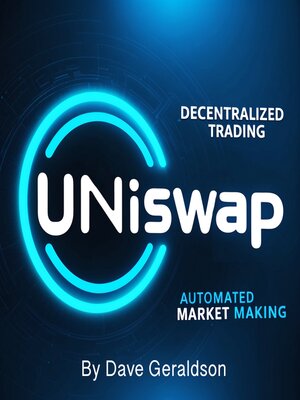
Sign up to save your library
With an OverDrive account, you can save your favorite libraries for at-a-glance information about availability. Find out more about OverDrive accounts.
Find this title in Libby, the library reading app by OverDrive.



Search for a digital library with this title
Title found at these libraries:
| Library Name | Distance |
|---|---|
| Loading... |
This audiobook is narrated by a digital voice.
In the summer of 2018, a young programmer named Hayden Adams found himself at a crossroads. Fresh out of Stony Brook University with a mechanical engineering degree, he had been laid off from his job at Siemens and was struggling to find his next career move. His friend Karl Floersch, who worked at the Ethereum Foundation, suggested he try building something on Ethereum to learn blockchain development. This casual suggestion would ultimately lead to one of the most influential protocols in decentralized finance history.
Adams initially dismissed the idea, having no background in finance or blockchain technology. However, persistence from Floersch and a growing curiosity about the potential of smart contracts eventually led him to explore Ethereum development seriously. The concept that would become Uniswap emerged from Adams' study of Vitalik Buterin's 2016 blog post about automated market makers, which described a theoretical mechanism for decentralized token trading without traditional order books.
The traditional model of cryptocurrency exchanges at the time relied heavily on centralized order books, where buyers and sellers would place orders at specific prices, waiting for matches. This system, while familiar from traditional finance, created several problems in the decentralized context. Centralized exchanges required users to deposit funds, creating custody risks and single points of failure. Even decentralized exchanges that attempted to maintain order books on-chain faced significant challenges with liquidity, especially for newer or less popular tokens.







